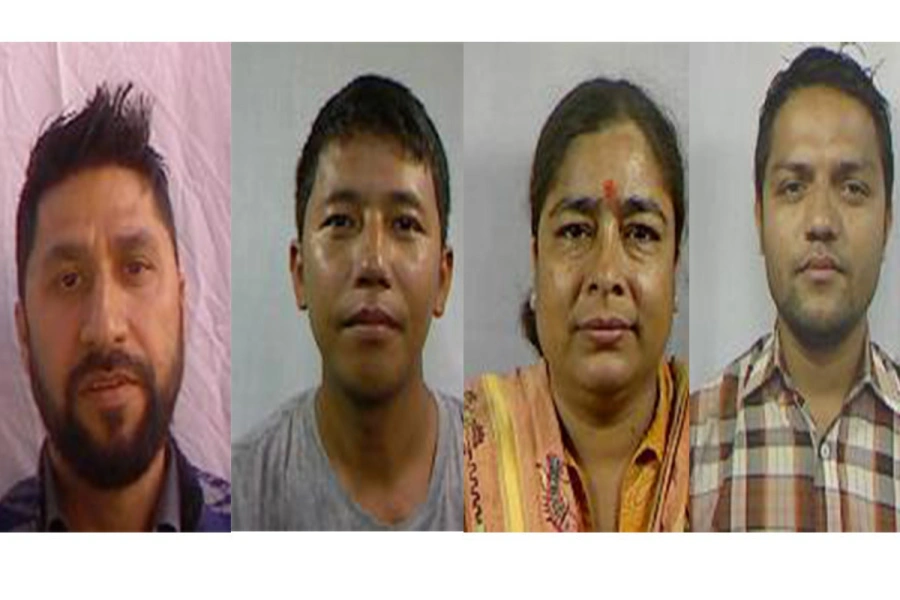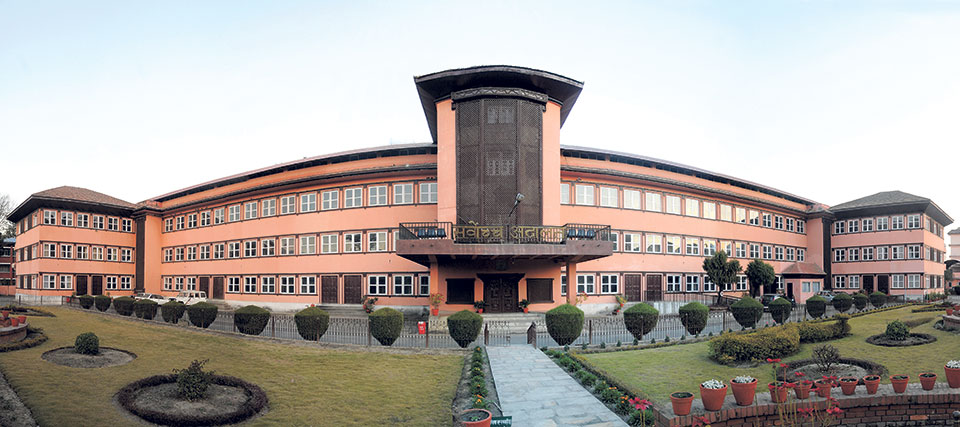A recent ruling by Kathmandu District Court in the favor of petitioners who challenged the decision of Kathmandu Metropolitan City (KMC) Mayor Balendra Shah (a.k.a Balen) to stop screening Indian movies in Kathmandu has brought two issues to the fore - who our judicial bodies are serving and are laws and court orders breakable. A Facebook post by Mayor Balen with possible mutiny against the ruling of the court further escalated the situation. Lawyers, politicians, and editors of major newspapers seem highly divided in response to Mayer Shah´s Post. While some argue that Mayor Shah´s statement could cost him his local government, others argue that this issue is not so simple, and the court should have done more homework before giving orders when there is a question of sovereignty of the country. Though Mayor shah challenged the decision of court on social media, he doesn’t seem to disobey the order in reality: movie theaters are open and running Bollywood movies since the court´s order. Meanwhile, the Supreme Court has already issued a subpoena against Mayor Shah to present a written clarification for his social media post against the court´s order. Plus, the district court in its initial statement argued that Mayor Shah doesn't have the constitutional power to halt Indian movies.
First, let’s understand what the case is and why this case has garnered so much hype. This issue starts with a dialogue in Bollywood movie, Adipurush, which depicts a Holy Hindu scripture, ``Ramayana´´, that ``Mata Sita´´ – goddess and lead character in the movie, is India´s daughter. So much so that the movie claimed Mata Sita, who was born in ancient Mithila and current Janakpur district of Nepal – there are ancient texts and copious evidence about this ``fact´´ and all Hindus, worldwide believe the same as a fact—was claimed to be born in India. In respect to this, when Mayor Shah stated that unless the movie corrects this dialogue, it will not be screened within KMC, the Censor Board of Nepal asked to remove this dialogue from the movie in Nepal and gave instant clearance once the dialogue was removed. However, Mayor Balen Shah was blatant in his decision, and asked producers of the movie to remove this dialogue from the movie not only in Nepal but also in India within 3 days or no movies from Bollywood would be screened in KMC.
Now, the question is the statement in the movie about Mata Sita against the sovereignty of the country. Of course, it would have been okay if the movie creators wanted to acknowledge Mata Sita and respect her being called daughter of India – every country or society wants in some way to connect with social deities and make them part of their lives. However, in this case, it does not sound this way. Instead, the producers seemed to claim that Nepal was a part of India and it only became independent somewhere around 1903/04, which is a blatant lie and has no historical evidence in whatever form whatsoever. When a movie maker himself is egregious enough to spread such lies not only through movies but also through live interviews, it is more than enough for even a layman to understand that this issue is of more than business.
JC recommends 35 judges for district courts and six judges for...

On the top of everything, this is not the first time that India has been promoting such lies: PM Modi himself stated that Lord Budha was from India – in fact, they are imitating Lumbini, where evidence shows Buddha was born, in India. Meanwhile, India has recently promulgated a new map including territories of Nepal in their new parliament. The foreign minister of India in a public oration stated that this is a cultural map, and our neighbors should not get offended. However, the point is that that statement does not justify the need for such a social map in Indian parliament when there has never been a cultural country in this continent named India. This is a pure political stunt of Modi: Maybe this is the retaliation to the new map of Nepal, which now includes Kalapani and Lipulekh -- de jure Nepali yet de facto controlled by India – to its political map.
If we analyze the present and past scenarios in detail, it can be argued that such propaganda – be it the case of a new map in Indian parliament or movie makers’ irresponsible statements or Indian politicians’ platitudes about such issues – they are challenging the sovereignty of our country Nepal. The issue should have been politically addressed by the government with a clear and straight statement to denounce all such issues at political level. However, the government seems oblivious and reluctant on such issues. The more we tolerate it, the more they will cook such propagandas. Though the court has stated that Mayor Shah has no constitutional right to talk about this issue, when responsible bodies are not taking it seriously, not only the mayor but also all the citizens have inherent and enshrined rights to have their opinions on this matter. On top of everything, it should have been the government of Nepal in the place of Mayor Shah: they should have done the same. But when the federal government seems irresponsible on such a national issue, local governments having exclusive rights to manage internal affairs in their territories have every right to act accordingly.
It is also important to note that despite having such a critical issue that the fate of Nepal was challenged, this case should have been taken more critically. Some argue that since the movie has removed that dialogue in Nepal, there is no point in banning the movie. However, the issue has already crossed the case of a bare dialogue: they are claiming Nepal as if it is their own territory. Moreover, they have removed it only from Nepal, not from all other platforms where the movie can be accessed online even in Nepal. When such issues are coming, the court's decision should also be critical: this case cannot be seen as a bare internal matter. In fact, some believe that the court should have banned the movie itself.
Arguments are also seen in the favor of Nepali box office´s financial loss due to banning this movie and all other Indian films in KMC. Yet, the point is what is the point of making money out of movies that lie and claim Nepal as Indian territory, though it is not claimed in movies, let alone movie makers statements tell their intentions. We must make them responsible. We cannot let any business in Nepal that challenges the sovereignty of the nation. Unless they apologize and show respect for Nepal as an independent country, it is good to keep them aside.
Similarly, the other issue is should we challenge the statutes and orders from courts? The answer is simple. NO, period. No one should be above the law: our constitution does not not even imagine such chaos. Everyone is responsible to follow and respect the orders of the court. Yet, courts should be shrewd enough to analyze the severity and criticality of the case. It is not foreign in Nepal and well known that court decisions are not free from bias, favoritism, and corruption. When court orders come in the form of this case that has more to do with sovereignty of the country than business, such issues are not normal and should not be treated as a normal petition. This is the result of political influence over our legal houses in part and lack of ability of judges to analyze the cases shrewdly, in others. This case is a prime example that our courts and nomination procedures of judges need a thorough rethinking and make courts and judges independent of political affairs whence they keep the sovereignty of the country at utmost priority in their usual hearings and decision making. Just imagine what happens if someone files a petition claiming Nepal as a part of India, and the court decides in favor…. Are we liable to follow such orders? This piece leaves an answer to the public, policy makers, judges, and the court.






































